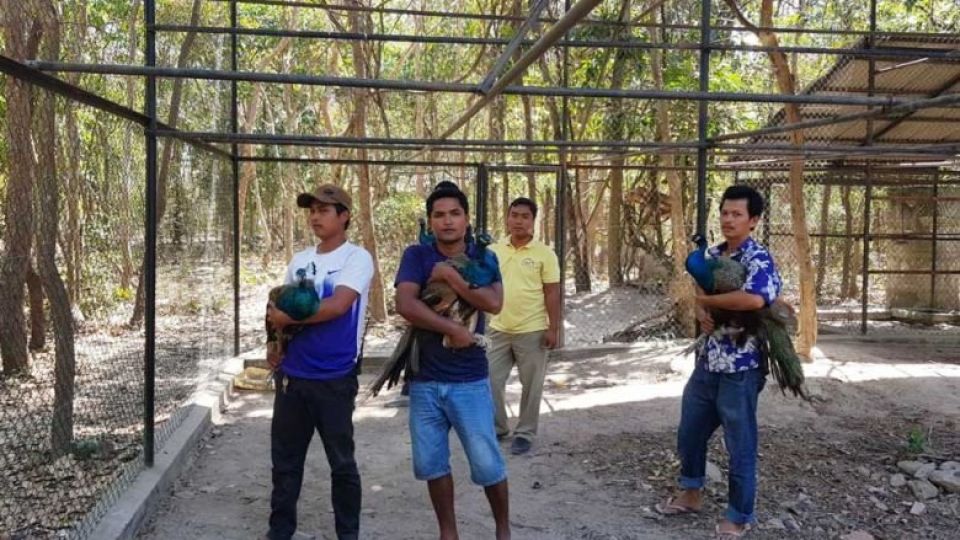March 1, 2023
PHNOM PENH – Prime Minister Hun Sen on February 28 suggested an amendment to the law governing wildlife protection that would pave the way for citizens to raise “rare” species following heated debates about a peacock confiscation case in Kampong Chhnang province.
In a special audio address on the morning of February 28, Hun Sen said: “There is no justification to confiscate peacocks raised by people to bring them to animal protection by claiming that raising them is illegal.
“In case there is a section in the law that said so, I request legal experts immediately amend the law and annul any sections related to the confiscation of animals from people. We should motivate our people to raise them, rather than prevent their initiative,” he said.
On February 16, a mobile intervention team from the Forestry Administration (FA), in cooperation with Wildlife Alliance, confiscated six peacocks from the Yim Sam Oeun family in Sanlong village of Boribor district’s Trapaing Chan commune, saying that raising and selling them is illegal.
The confiscation drew the ire of social media users, who urged the relevant institutions to motivate people to raise rare species “because it contributes to conservation”.
The premier also issued a direct order to FA officials under the Ministry of Agriculture, Forestry and Fisheries to bring the peacocks back to their owners immediately.
Following Hun Sen’s statement, Yim Sam Oeun posted on Facebook thanking him for ordering his peacocks returned.
On afternoon of February 28, FA officials transported all peacocks back to their owners, according to local media outlet Fresh News.
According to Article 48 of the forestry law, which covers wildlife conservation, all kinds of wildlife in Cambodia are state property and part of forest resources, including all species of mammals, birds, reptiles, amphibians, insects, other invertebrates and their eggs or offspring.
“Such wildlife is under the management, research and conservation of the FA, except for fish and animals that breed in water,” it said.
According to Prakas No 020 issued on January 25, 2007, on the categorisation of wildlife based on the Convention on International Trade in Endangered Species of Wild Fauna and Flora (CITES), the peacock or Green Peafowl (Pavo muticus) is a “rare species”.
Trading in rare species without permission from authorising ministries or institutions carries a penalty of one to five years in jail and a fine of up to 10 million riel ($2,500), according to Article 98 of the same law.
Article 49 of the law says that rare and endangered wildlife species are prohibited from being hunted, netted, trapped, poisoned, possessed, stocked, or maintained in a zoo or in a home, transported, imported and exported.
Ministry of Justice spokesman Chin Malin said an amendment to any law is initiated by the relevant ministry, while the justice ministry will be involved in consultations on the sections which are related to penalties.
Nick Marx, director of Wildlife Rescue and Care at Wildlife Alliance, could not be reached for comment on February 28.
Agriculture ministry spokeswoman Im Rachna told The Post that the ministry will follow the premier’s “precise decision”.


